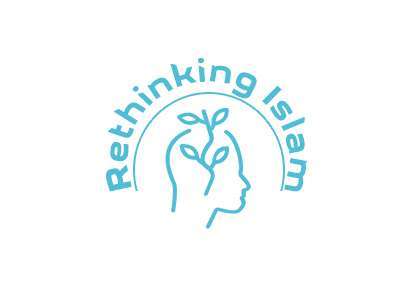When in doubt, Google it.
That motto no longer stops at fixing leaky taps or decoding cryptic WhatsApp messages—it’s transforming how many Muslims engage with their faith.
Enter Sheikh Google: always awake, always ready, and just a few clicks away from fatwas, tafsirs, YouTube lectures, and TikTok videos. Welcome to the era of DIY Islam, where your spiritual journey is shaped not only by tradition but also by Wi-Fi.
What is DIY Islam?
DIY Islam is like building IKEA furniture—for your soul. You’re given tools (apps, videos, PDFs), instructions (sometimes conflicting), and the freedom to assemble it all yourself. You choose what fits your lifestyle, beliefs, and identity.
Gone are the days when gaining Islamic knowledge meant years of study under scholars. Today, your favorite imam might deliver a 30-second Instagram Reel between cooking tips and memes.
Where Did This Come From?
The digital age tore down walls that once surrounded Islamic knowledge. With a smartphone, Muslims across the world can now access material that was once hidden behind institutional doors or dusty library shelves.
This opened up space for personal exploration—mixing traditions, schools of thought, and sometimes even Sufi poetry for aesthetic flair. Many now shape their spiritual paths beyond their local mosque or family traditions.
What’s Driving It?
Three big forces fuel DIY Islam:
-
Digital Access → With Qur’an apps, khutbah playlists, and YouTube lectures, knowledge is at your fingertips.
-
Individual Agency → You don’t wait for permission—you dive into texts and teachings on your own.
-
Redefining Community → Online communities connect seekers worldwide, creating new spaces for belonging.
The Role of Tech
Technology hasn’t just transformed shopping and taxis—it’s reshaping faith.
From AI-generated khutbahs to Qur’an apps that track your reading, Islam is now just one notification away. A few Google searches can pull up centuries of scholarship—but also just as many disagreements. Whether you’re researching moon sighting rulings or halal oat milk, the answers are online.
But beware: the endless scroll brings endless opinions.
The Bright Side
This new landscape is empowering. You can:
✅ Access scholars worldwide
✅ Learn at your own pace
✅ Shape a faith practice that resonates with your context
Numbers back this up:
-
40% of Muslims in North America turn to online platforms for Islamic learning.
-
30% of Indonesian millennials engage in religious self-study on social media.
-
15% of Muslim youth prefer livestreaming scholars over mosque attendance.
Influencers like Abu Eesa Niamatullah and Yasir Qadhi have harnessed this power, using YouTube, podcasts, and social media to reach millions—offering both accessibility and grounded scholarship.
The Challenges
But there’s another side to the story.
-
Misinterpretation: Without deep knowledge of the Qur’an, Hadith, and scholarly tradition, it’s easy to misunderstand. A verse taken out of context or a viral clip can lead people astray. Algorithms often show us what we like, not what we need.
-
Fragmentation: When everyone becomes their own mufti, consistency can get lost. The diversity of views online can inspire—but it can also fracture communities and cause confusion.
What Counts as “Adequate Knowledge”?
This is key: Adequate knowledge doesn’t mean just Googling answers. It means:
-
Immersive study of Qur’an and Sunnah in context
-
Understanding the principles behind rulings, not just the surface text
-
Learning from those who have deep, reliable training in the Islamic sciences
If you can’t do this yourself, then at least turn to scholars who have—whether online or in person.
Global Perspectives
In the West, Muslims blend classical jurisprudence with modern questions—about feminism, climate change, and digital ethics. DIY Islam helps navigate these spaces.
In more traditional societies, young Muslims are quietly challenging old norms, seeking knowledge beyond their local circles.
Where Is This Going?
Expect smarter apps, interactive mosque tours, maybe even holographic khutbahs. As tech evolves, so will our relationship with faith.
But amidst the digital excitement, one truth remains: the heart of Islam is timeless.
The Takeaway
DIY Islam offers huge potential for empowerment, access, and learning. But it also demands humility and discernment.
Approach it wisely. Don’t confuse a blog post or a TikTok clip with scholarly consensus. And don’t forget: sometimes the best answers still come from sitting down with a wise elder over a cup of tea.
The digital ummah is here to stay. Make it a space of growth, not just noise.

